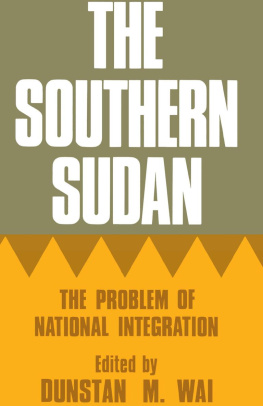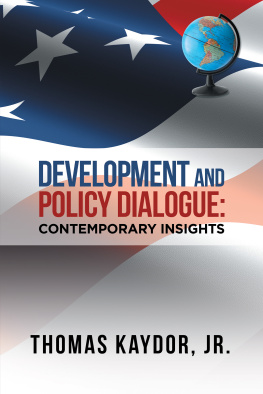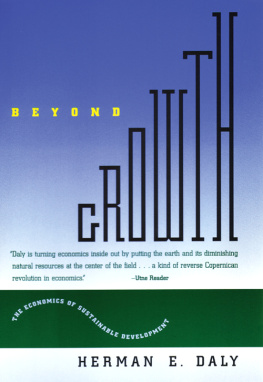

A Note from the Publisher
The publisher wishes to acknowledge and thank Dr Douglas H. Johnson for his invaluable help and support for Africa World Books and its mission of preserving and promoting African cultural and literary traditions and history. Dr Johnson and fellow historians have been instrumental in ensuring that African people remain connected to their past and their identity. Africa World Books is proud to carry on this mission.
Lual A. Deng, 2020
ISBN: 978-0-6489698-4-6
ISBN: 978-0-6489291-4-7 (ebook)
All rights reserved. No part of this publication may be reproduced, stored in a retrieval system, or transmitted, in any form, or by any means, electronic, mechanical, photocopying, recording or otherwise, without the prior permission of the publishers.
This book is sold subject to the conditions that it shall not, by way of trade or otherwise, be lent, re-sold, hired out or otherwise circulated without the publishers prior consent in any form of binding or cover other than in which it is published and without a similar condition including the condition being imposed on the subsequent purchaser.
Design and typesetting: Africa World Books
DEDICATION
I dedicate this book to the people of South Sudan who have spoken the truth with courage, through the grassroots consultations and the three Regional Conferences, about the root causes of the crises of governance and leadership in our country. Our people have demonstrated beyond doubt their resilience to endogenous and exogenous shocks, a fundamental social capital that reinforces my professional conviction and commitment to serve them with integrity, pride, and dignity.
LIST OF CONTENTS
LIST OF TABLES
LIST OF FIGURES
ACKNOWLEDGEMENTS

I would like to first thank President Salva Kiir Mayardit for appointing the Ebony Center for Strategic Studies as one of the five organizations constituting the Secretariat of the National Dialogue Steering Committee. Secondly, I thank the other four members of the Secretariat Sudd Institute; Institute of Development, Peace, and Security Studies, University of Juba; South Sudan Council of Churches; and South Sudan Islamic Council for their confidence in nominating me as the Coordinator of the Secretariat to the Leadership of the National Dialogue Steering Committee. Thirdly, my appreciation goes to the Leadership of the National Dialogue for appointing me as the Coordinator and for their unwavering support to the work of the Secretariat. Fourthly, I am highly indebted to my colleagues in the Secretariat for their commitment to the service of our people; I thank them from the bottom of my heart for enduring the stresses of my constant demand to meet the obligations of the task. Fifthly, Prof. Daniel Bromley assisted me in the reorganization of the chapters of the book and provided a foreword; I thank him for his continued support and for his interest to serve the people of South Sudan. Sixthly, I thank Ms. Alexandra Dominique Gould and Professor Augustino Ting Mayai for their editorial assistance. Finally, my daughter Nyandeng (NuNu) designed the cover of the book; I thank her greatly. I also thank Peter Lual Reec Deng, my publisher, for sharing my thoughts about and experience with the South Sudans National Dialogue with the world.
FOREWORD
Dr. Lual Deng stands alone in South Sudan. There is not another individual who possesses his comprehensive understanding of the social, economic, and political landscapes that now grip this tragic nation. However, understanding is but the first step in helping others to grasp the intricacies of what is currently impeding improved livelihoods, individual aspirations, and lasting peace. Yet, even when that shared comprehension settles over the land, there remains the Sisyphean task of getting that large boulder up to the eager summit. Here is the challenge of bringing others to your side. The National Dialogue is central to that necessity, and here again Lual Deng is a singular force.
There are many ways to express the wishes of the South Sudanese, and there are many ways to articulate their justified impatience with the political class. I have listened to a variety of those lamentations. And I understand their frustrations. After all, those who survive by the incessant need to keep their cattle fed and watered do not have the luxury of doing nothing. Their motto, perhaps unspoken, is get on with it! In the face of despair and persistent stasis, the worst thing that governments can do is to do nothing. The cattle keeper knows this all too well. It can keep him awake at night.
The National Dialogue is a promise and a threat. The vision is too grand, the logic too compelling, and the process too enlightened to risk failure. The stakes are now of such a magnitude that failure is not an option. That is the threatthat once again the comfortable ruling elites will continue to find reasons to squabble, dither, stall, argue, posture, and drag it out for show and trivial gains. Perhaps they imagine that doing so makes them look important. Actually, it reveals their defects as leaders.
In this book Lual Deng clarifies that which needs clarity, he gives structure to what remains inchoate, and he shows a clear way forward. This comprehensive work certainly increases the threat of the National Dialogue. After all, how can the political class fail to act when Lual has shown them a clear and inspiring road map?
Daniel W. Bromley
Anderson-Bascom Professor of Applied Economics (Emeritus)
University of Wisconsin-Madison
Acronyms
| AAA | Abyei Administrative Area |
| AfDB | African Development Bank |
| AFM | Aggregate Financial Management |
| ARA | Arusha Reunification Agreement |
| ARCSS | Agreement On the Resolution of Conflict in the Republic of South Sudan |
| BGR | Bahr el Ghazal Region |
| BoSS | Bank of South Sudan |
| CANS | Civil Authority of New Sudan |
| CBO | Community Based Organizations |
| COLA | Cost of Living Allowance |
| CPA | Comprehensive Peace Agreement |
| DPF | Development Policy Forum |
| DPO | Development Policy Operations |
| FDI | Foreign Direct Investment |
| FDs | Former Political Detainees |
| FFP | Fund for Peace |
| FRM | Fiduciary Risk Management |
| FVP | First Vice President |
| FY | Fiscal Year |
| GDF | Growth Diagnostic Framework |
| GDP | Gross Domestic Product |
| GER | Greater Equatoria Region |
| GONU | Sudan Government of National Unity |
| GoSS | Government of South Sudan |
| GUNR | Greater Upper Nile Region |
| HLRF | High Level Revitalization Forum |
| IBRD | International Bank for Reconstruction and Development |









